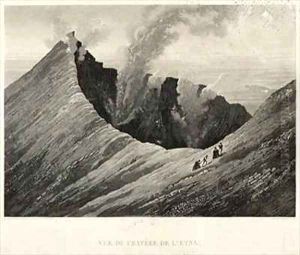Forbin, Comte de Paintings
Louis Nicolas Philippe Auguste de Forbin was born in 1756 in La Roque d'Anthéron, France. He belonged to an old aristocratic family, which had a significant influence on his upbringing and career. Forbin is notable for his multifaceted career as a painter, military officer, and later, as the director of the Louvre Museum, a position that he held from 1816 until his death in 1841. His tenure at the Louvre was marked by significant acquisitions and an expansion of the museum's collection, reinforcing its status as one of the premier art institutions in the world.
Forbin's early life was shaped by the turbulent times of the French Revolution and the Napoleonic Wars. Despite his noble lineage, he managed to navigate the political upheavals of his time, often participating in military campaigns. However, his true passion lay in the arts. As a young man, Forbin traveled extensively throughout Europe and the Near East, drawing inspiration from the various cultures and landscapes he encountered. These experiences deeply influenced his artistic work, which often depicted exotic and historical scenes.
In addition to his travels and military service, Forbin was deeply involved in the artistic and cultural life of his era. He was friends with many of the leading artists and intellectuals of his time and was an active participant in the cultural revival that characterized the early 19th century in France. His artistic output, though not as prolific or renowned as some of his contemporaries, was nonetheless respected by his peers.
Forbin's most lasting legacy is undoubtedly his work as the director of the Louvre. He was appointed to this position by King Louis XVIII and served under both the Bourbon Restoration and the July Monarchy. During his tenure, he oversaw the return of many artworks that had been looted during the Napoleonic Wars, as well as the acquisition of new pieces, including works by Raphael and Titian. He also initiated the creation of new galleries and the reorganization of the museum's collections, efforts that greatly enhanced the Louvre's reputation and accessibility.
Louis Nicolas Philippe Auguste de Forbin passed away in 1841, leaving behind a legacy that spanned the military, art, and museum administration. His contributions to the Louvre and to French cultural life have made him a significant figure in the history of art and museum management.
